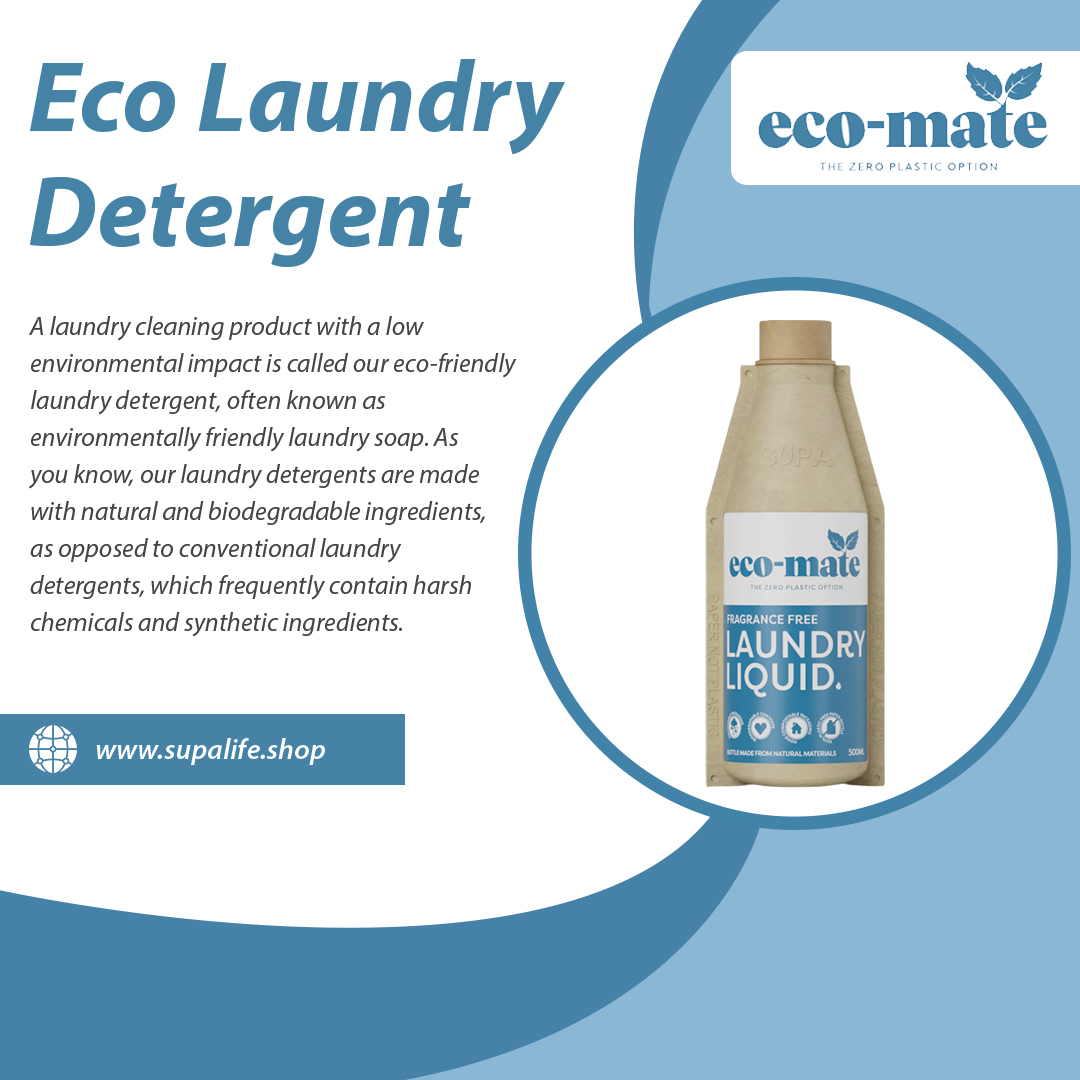Laundry is a chore that everyone has to do, but it doesn’t have to be bad for the environment. There are a number of eco-friendly laundry detergents available that can help you clean your clothes without harming the planet. In this blog post, we will discuss what eco laundry detergents are, the benefits of using them, and how to choose the right one for your needs.
What is eco laundry detergent?
Eco laundry detergent is a type of detergent that is made with plant-based ingredients and is biodegradable. This means that it will break down naturally in the environment and will not pollute our waterways. Eco laundry detergents are also typically free of harsh chemicals such as phosphates, sulfates, and optical brighteners, which can be harmful to human health and the environment.
Benefits of using eco laundry detergent
There are many benefits to using eco laundry detergent. These benefits include:
- Reduced environmental impact:Eco laundry detergents are made with plant-based ingredients and are biodegradable, which means that they will not pollute our waterways.
- Safer for human health:Eco laundry detergents are typically free of harsh chemicals such as phosphates, sulfates, and optical brighteners, which can be harmful to human health.
- Can help to reduce allergies and skin irritation:Eco laundry detergents are often made with hypoallergenic ingredients, which can help to reduce allergies and skin irritation.
- Can be more effective at cleaning clothes:Some people find that eco laundry detergents are more effective at cleaning clothes than traditional detergents.
How to choose the right eco laundry detergent for your needs
When choosing an eco laundry detergent, there are a few things to keep in mind. These include:
- The type of water you have:If you have hard water, you will need to choose a detergent that is specifically designed for hard water.
- The type of laundry you do:If you do a lot of laundry, you will need to choose a detergent that is concentrated.
- Your budget:Eco laundry detergents can range in price from a few dollars to a few dozen dollars per bottle.
How to use eco laundry detergent
Eco laundry detergent is typically used in the same way as traditional detergent. However, there are a few things to keep in mind:
- Use the correct amount of detergent:Be sure to follow the instructions on the bottle of detergent. Using too much detergent can be harmful to your clothes and the environment.
- Wash your clothes in cold water:Cold water is just as effective at cleaning clothes as hot water, and it is better for the environment.
- Air dry your clothes:Air drying your clothes is a great way to save energy.
Making your own eco laundry detergent
If you are on a budget or you want to be sure that your laundry detergent is as eco-friendly as possible, you can make your own. There are a number of recipes available online.
Where to buy eco laundry detergent
Eco laundry detergent can be found at most grocery stores and online retailers. Some popular brands of eco laundry detergent include:
- Seventh Generation
- Ecover
- Biokleen
- Meyer’s
- All Free & Clear
Conclusion
Eco laundry detergent is a great way to clean your clothes without harming the environment. There are many benefits to using eco laundry detergent, including reduced environmental impact, safer ingredients, and reduced allergies and skin irritation. If you are looking for a greener way to do your laundry, I encourage you to try eco laundry detergent.
Additional tips
In addition to the tips above, here are a few additional tips for using eco laundry detergent:
- Choose a detergent that is scented with essential oils.Essential oils are a great way to add a natural fragrance to your laundry.
- Use a laundry booster if you have hard water or if you are washing heavily soiled clothes.A laundry booster can help to remove stubborn stains and odors.
- Be sure to wash your clothes in full loads.This will help to conserve water and energy.

